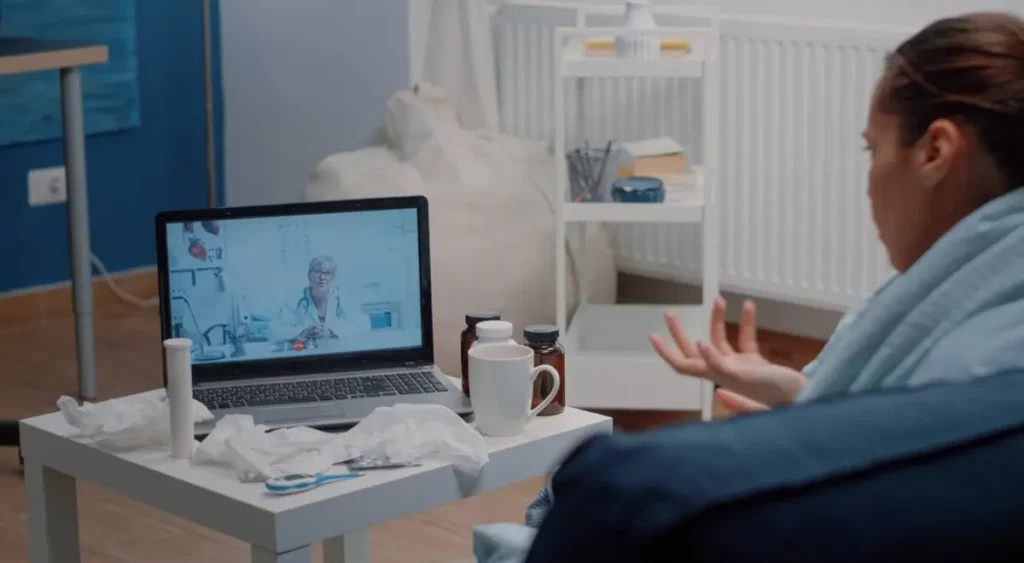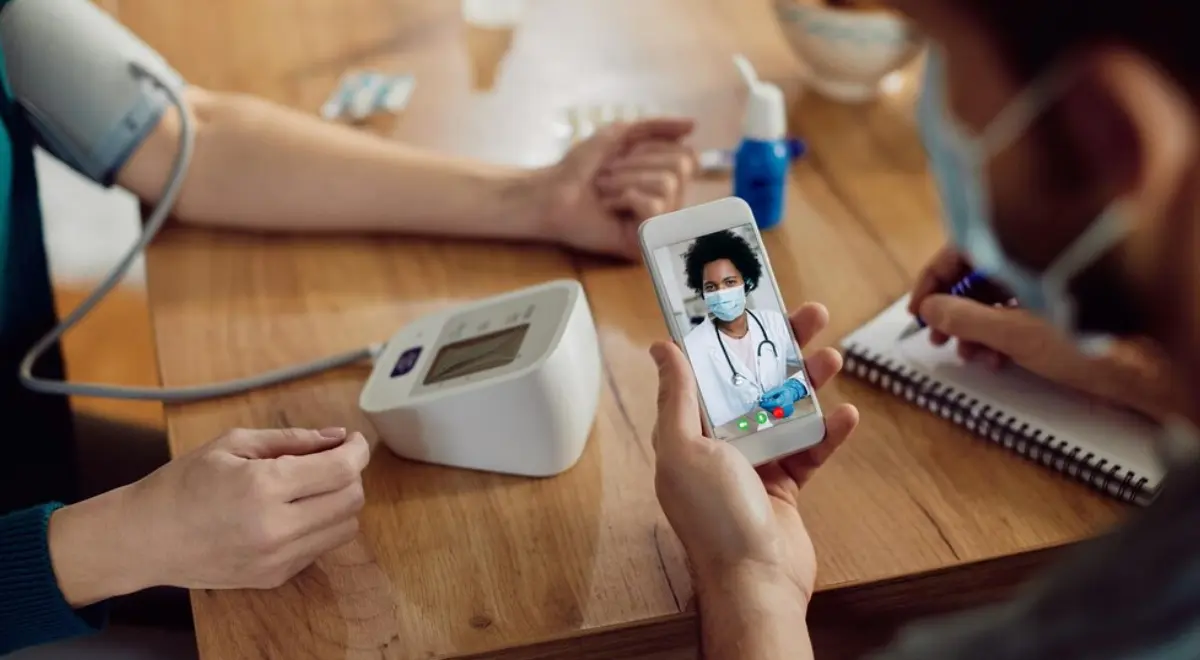The Role of Remote Patient Monitoring (RPM) in Neurological Disorders

Want to reap the benefits of Remote Patient Monitoring (RPM) at your neurology practice? RPM plays a significant role in helping manage the treatment plans and detect potential complications in patients dealing with neurological disorders, such as Epilepsy and Parkinson’s disease. Since these conditions can have a profound impact on a patient’s quality of life, they require continuous monitoring and timely symptom management to avoid emergency hospital visits.
Remote patient monitoring has emerged as a valuable technology in the field of neurology and allows healthcare providers to track patients’ neurological health remotely by provide timely interventions and treatment plans when needed.
In this blog post, we will explore the role of RPM in monitoring patients with neurological conditions , the benefits it offers for patients and healthcare providers, and the potential impact it can have on the management of neurological conditions.
Table of Contents
ToggleRemote Patient Monitoring for Patients with Neurological Conditions
Neurological conditions affect both the peripheral and central nervous systems, reducing general mobility and cognitive functionality in patients, especially those with epilepsy and Parkinson’s disease. RPM can assist healthcare professionals in managing these chronic neurological conditions with:
- Continuous Follow-ups: With regular monitoring and follow-up, a healthcare professional enables the timely detection of deteriorating clinical symptoms and prescribe an improved treatment plan to avoid emergencies and unexpected medical appointments.
- Enhanced Care Coordination: RPM allows the exchange of patient data and health records to reduce the communication barrier between healthcare providers and patients to facilitate medication adherence and treatment, including managing several comorbidities.
- Improved Clinical Results: With remote patient monitoring, healthcare providers can deliver improved clinical productivity and wellness results by automating documentation and reducing travel time for physician office visits.
- Increased Patient Satisfaction: RPM allows patients and care providers in building a positive relationship and foster a sense of connection by staying in constant touch throughout the good and bad health conditions.
How RPM Facilitates Optimal Treatment Outcomes?
Neurological health encompasses a wide range of parameters that need to be monitored regularly to ensure optimal treatment outcomes in epilepsy and Parkinson’s patients. Patients with neurological conditions often require ongoing monitoring of their symptoms, medication adherence, and disease progression.
RPM technology offers a more convenient and cost-effective alternative to traditional or in-office patient monitoring, allowing patients to be monitored remotely from the comfort of their own homes and ensuring a reduced load on healthcare providers as well.
RPM for Parkinson’s Disease
For patients suffering from Parkinson’s disease, remote patient monitoring facilitates:
- Virtual consultations with healthcare specialists
- Remote blood pressure monitoring
- Medication adherence
- Early detection of symptoms
- Send patient health record alerts to healthcare providers
RPM for Epilepsy
For patients suffering from Epilepsy, remote patient monitoring facilitates:
- Care coordination
- Wearable devices to identify seizures, monitoring sleep and physical activity
- Send patient health record alerts to healthcare providers
Benefits of Remote Patient Monitoring in Neurology
- Ensures Real Time Monitoring
One of the key benefits of RPM in neurology is its ability to help healthcare providers manage treatment plans more effectively with real-time monitoring. By continuously monitoring patients’ health, providers can track changes in symptoms or medication adherence and make adjustments to treatment plans as needed. This real-time monitoring allows for customized treatment plans and better patient management.
- Identifies Health Complications
RPM also plays a crucial role in detecting potential complications or disease progression at an early stage. In patients with epilepsy, RPM identifies changes in seizure frequency or severity to make medication adjustments or other interventions. In patients with Parkinson’s disease, RPM identifies changes in motor symptoms or medication side effects, allowing for timely interventions to manage these symptoms effectively.
- Enhances Patient Engagement & Outcomes
Another significant benefit of RPM in neurology is its potential to enhance patient health, engagement, and outcomes. Patients with neurological conditions are often at higher risk for complications or emergencies, such as seizures or falls. RPM allows healthcare providers to monitor patients’ vital signs, activity levels, and other neurological parameters remotely, giving them early warning of potential health risks that may arise in coming days. This early detection can help prevent emergencies and improve patient safety, allowing patients to live more independently and confidently.
- Manages Physicians’ Caseloads
By remotely monitoring patients’ neurological health, providers can more efficiently manage their caseloads and prioritize care for patients who need it the most. This proactive approach to care can lead to better outcomes for patients and reduce healthcare costs by preventing hospitalizations or emergency room visits.
Conclusion
Overall, the role of RPM in neurology is rapidly expanding and revolutionizing the way neurological conditions are managed. By enabling remote monitoring to identify patients’ symptoms, medication adherence, and disease progression, RPM delivers a more convenient and personalized approach to care.
By allowing patients to actively participate in monitoring their health and sharing data with their healthcare providers, RPM can help patients take control of their condition and make informed decisions about their treatment plans.
As remote healthcare technology continues to advance, RPM will likely play an increasingly important role in the management of neurological conditions, ultimately leading to better quality of life for patients with complex neurological disorders.
Improve Neurological Care Outcomes With HealthArc
Boost your patient’s clinical results and neurological care outcomes with HealthArc’s advanced RPM clinical software and digital health platform focused on smooth patient transition, seamless communication, and enhanced overall patient engagement, ensuring optimal outcomes for both l patients and healthcare providers.
Request a free demo or feel free to talk to our team at +201 885 5571 to learn how we can help you manage epilepsy and Parkinson’s disease with RPM.
Most recent blogs
Categories
- Advanced Primary Care Management
- Behavioral Health Integration
- Cellular Remote Patient Monitoring
- Chronic Care Management
- Chronic Care Management Billing
- Chronic Care Management CPT Codes
- Chronic Care Management Program
- Chronic Care Management Software
- Digital Health Platform
- Principal Care Management
- Principal Care Management CPT Codes
- Remote Care Programs
- Remote Monitoring Devices
- Remote Patient Care
- Remote Patient Monitoring
- Remote Patient Monitoring Billing
- Remote Patient Monitoring CPT Codes
- Remote Patient Monitoring Devices
- Remote Patient Software
- Remote Therapeutic Monitoring
- Remote Therapeutic Monitoring Billing
- Remote Therapeutic Monitoring CPT Codes
- Telemedicine & RPM
- Transitional Care Management
- Transitional Care Management Billing
- Transitional Care Management CPT Codes
Related Posts
- February 21, 2025 | Read Time: 5 mins
RPM’s Role in Identifying Early Symptoms of Chronic Conditions for Prevention
- February 14, 2025 | Read Time: 4 mins
Monitoring Post-Surgical Recovery With RPM Systems
- February 10, 2025 | Read Time: 5 mins






